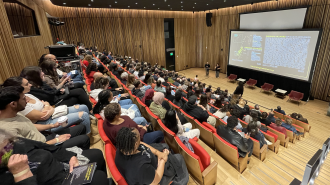
Azeem Rafiq and the impossibility of the imperfect complainant

In 1955, months before Rosa Parks chose to sit on a bus, two teenage girls, Mary Louise Smith and Claudette Colvin, had already sat down in protest over enforced segregation in Montgomery’s buses.
The cases of these young women are not as well-known as that of Parks, largely because African-American leadership felt that they were the imperfect complainants. Colvin and Smith had ‘tainted’ reputations: one of them had been pregnant by a much older man, and the other due to her father’s alcoholism.
In a system of extreme racism, such as that of Jim Crow USA, there was a perception that in order to bring forth a complaint, you need to have a ‘clean’ public record.
"Yes, individuals should always apologise for their own misdeeds, but when the structural nature of discrimination is exposed, the focus should always firmly remain on the structure, not the messenger"
As documented by Jeanne Theoharis in A More Beautiful and Terrible History both young women would later give key evidence in the case of Browder v. Gayle which was instrumental in the dismantling of segregation of Montgomery’s buses but without the support of ministers or male leaders from the civil rights movement.
According to Theoharis: “Much has been made about the respectability politics that led community to deem neither of these young women suitable to organize a mass movement around. And certainly their youth, feistiness, and class status were factors that led adults to not rally behind them.”
Fast forward to 2021, and Azeem Rafiq, the former Yorkshire cricket player has become a household name in the UK for raising his voice on the extent of institutional racism within the game of cricket.
The startling and difficult revelations of his experiences of racism and Islamophobia kindled a great deal of sympathy from across different parts of UK society, resulting in searing questions being asked of those in power within the cricketing world.
scrutinised by elements of right-wing media [Getty Images]
Rafiq’s moving account of the difficulties he suffered on a personal level was shocking, but ultimately the attention they garnered was short-lived.
Despite his best attempts to emphasise that the issue of racism within cricket was about its systemic nature, he was ultimately held as the standard-bearer for the purity of the claim being made, and once a light was shone on his own imperfections, the important questions he raised were belittled.
To be clear, a 19-year-old Rafiq sending messages to someone that were overtly anti-Semitic is no small issue and should be clearly recognised – which Rafiq was unwavering in doing so. He made it very clear that his language was unacceptable and he apologised to the Jewish community for the hurt he had caused them.
Read more here: Cricket racism whistleblower Azeem Rafiq apologises for derogatory ‘Jew’ remarks
Yet what surfaced in reaction to the claims was a concerted effort to minimise the seriousness of the racism allegations he had raised by painting Rafiq as a hypocrite.
Historic images of him drinking alcohol (despite being a Muslim), the messages with racist content, and most recently, lewd messages he allegedly sent to a 16-year-old, have all been highlighted in order to cast doubt on his character, and, by extension, undermine the entire issue of systemic racism that he raised.
On 18 November 2021, the former editor of the tabloid The Sun, Kelvin MacKenzie, published a tweet linking Azeem Rafiq’s cultural background to anti-Semitism, which was liked almost 1,000 times:
This argument was taken further by former MEP Lance Forman, also on Twitter, who then added his own commentary to Rafiq’s expression of solidarity with the people of Gaza in May 2021. According to Forman:
The escalation of critique from those with large Twitter followings attempting to discredit Azeem Rafiq went from wrong-minded messages he was sending privately, to associating him anachronistically with redefined assessments of terrorism by the UK government.
For Rafiq, he has been forced to learn a lesson encountered by all those who hold structures of power to account: that when you challenge them, they will obfuscate their wrongdoing by highlighting your own imperfections.
Azeem Rafiq’s complaints did not take place in a court of law, and so the scrutiny he has faced has largely taken place in the court of public opinion.
A case that has been running somewhat concurrently with the news about Rafiq has been the trial of Kyle Rittenhouse, an 18-year-old man found not guilty of having killed two men and seriously injuring a third. Somewhat perversely, the Rittenhouse case presents the possibility of a perfect complainant, one for whom the context of his life, actions and statements is not only legally made irrelevant to his actions but also protected from the sight of the jury.
"Despite his [Azeem Rafiq's] best attempts to emphasise that the issue of racism within cricket was about its systemic nature, he was ultimately held as the standard bearer for the purity of the claim being made, and once a light was shone on his own imperfections, the important questions he raised were belittled"
The trial of Rittenhouse was supposed to bring some semblance of justice to the murdered men after he unlawfully purchased an assault rifle and travelled across US state lines in order to attend a protest against systemic racism in the US. In a strange turn of events, Rittenhouse was turned into the perfect complainant, as Judge Schroeder narrowly defined the scope of assessing his crime.
The judge precluded evidence of his Rittenhouse’s video statements in the past describing how he would like to shoot people he believed were looters. Considering the locus of his statements to the eventual killings, one would imagine this would have been important information for a jury, and yet the judge rejected it, arguing with prosecutors that this was not relevant.
|
I have been involved in the defence cases of dozens of men and women on trial in the US for murder and terrorism offences. In each case, the prosecutors would distort seemingly innocuous behaviour and have experts present it as part of the pathology of terrorism, whether it was something as small as regular prayer, to attending an anti-war protest. In some cases, prosecutors would play videos of the Twin Towers burning to juries, even where a terrorism case had nothing to do with the events of 11 September 2001.
Judges have always permitted these wider contextual moves by prosecutors – well beyond the scope of locus to the case – and yet context for Rittenhouse was significantly narrowed.
Unlike so many cases involving people of colour, the decision to disregard significant aspects of the wider context of Rittenhouse’s behaviours stood in sharp contrast during this media cycle with the scrutiny of every aspect of Azeem Rafiq’s life.
As in the case of African-American leadership during the civil rights struggle, there has always been a recognition that because the entirety of the system is structurally racist, in order to bring a complaint, you have to live a life with an unblemished reputation or be afforded the privilege of a white male, for you to be heard without other prejudices undermining your cause or redefining your experiences. This equally applies in other areas too, such as complaints made by women against those who sexually assault them.
On 16 November 2021, MP Caroline Nokes accused the Prime Minister’s father, Stanley Johnson, of smacking her bottom in 2003, and was soon followed by Ailbhe Rea who claimed she had been groped by him in 2019. While these allegations were highlighted in the media, what also took place in the ensuing week, was intense scrutiny of Nokes, to assess whether or not she ‘deserved’ such treatment, as journalists, “scoured through her past sex life.”
Speaking to the Times Radio on 21 November 2021, Nokes commented: “That’s just horrific because how does a perpetrator know what kind of life their victim has led? We are literally in a culture that is trying to turn it on the woman, make it her fault, blame her, accuse her of making it a political vendetta.”
These are concerns that all those who come forward with allegations of abuse confront. Will they be believed? Will their life be torn apart and relentlessly scrutinised in order to make them less believable? Ultimately, for anyone who does come forward to blow the whistle on abuse, this scrutiny is something they are forced to face.
"Despite all of the manoeuvring to try and find some semblance of rights, ultimately there is still the discourse perpetuated by those in politics and the media, that rallies to expose imperfections when the complainant raises issues that are systemic"
The pervasiveness of discrimination and inequality within the structures of British life means that discrimination is something that people of colour have to think about in the course of their daily interactions.
Despite the supposed gains that have been made since the civil rights era in fighting racism and discrimination, similar arguments are made today on the ways in which individuals fight for their rights within legal structures that are structurally prejudiced.
Writing in a collection I was privileged to edit, I Refuse to Condemn, Fahad Ansari highlights the ways in which Muslim lawyers are problematised by the system for simply making the same arguments that their non-Muslim counterparts might also make in the course of defending those suspected of terrorist offences.
Ansari exposes how even as a lawyer, with both professional and personal ethics, there is another standard by which his advocacy of his clients is judged.
Equally, Ansari recognises the ubiquity of discrimination within the system, and so when making arguments about the nature of his clients’ belief systems to explain to a judge, he will often rely on ‘white cover’ to ensure that the arguments are heard without fear of prejudice:
“Even the process of trying to demonstrate this fact results in the instruction of non-Muslim experts and witnesses largely to evade allegations of bias or partiality. In order to try and protect our clients’ interests, we often end up perpetuating this prejudiced practice. Amongst lawyers and clients alike, the unspoken assumption is that in a legal system embedded with structural racism, White cover is a necessity.”
The sad reality of the system we live in is that racism and prejudice are so pervasive, that most of the time all we can do is to try and accommodate their presence.
Those fighting legal cases are aware of the difficulties they will face within the court's system, so they wait and wait to find the perfect complainant in order to fight their case.
They are also aware of the prejudices of judges, and so will often find the perfect experts (read white experts) to explain matters to the court and argue why their imperfect client (read person of colour) is deserving of rights, knowing full well that non-white experts will not be heard with the same degree of sympathy.
Despite all of the manoeuvring to try and find some semblance of rights, ultimately there is still the discourse perpetuated by those in politics and the media, that rallies to expose imperfections when the complainant raises issues that are systemic.
This is a tactic of deflection that has now been witnessed far too often to ignore.
Yes, individuals should always apologise for their own misdeeds, but when the structural nature of discrimination is exposed, the focus should always firmly remain on the structure, not the messenger.
Dr Asim Qureshi is the Research Director of the advocacy group CAGE and has authored a number of books detailing the impact of the global War on Terror.
Follow him on Twitter: @AsimCP
![Azeem Rafiq (pictured) role as a credible whistle-blower in exposing systemic racism in cricket has been viciously scrutinised by elements of the right-wing media [Getty Images]](/sites/default/files/styles/medium_16_9/public/2021-12/GettyImages-941045490.jpg?h=199d8c1f&itok=qBkpd0FL)






 Follow the Middle East's top stories in English at The New Arab on Google News
Follow the Middle East's top stories in English at The New Arab on Google News


